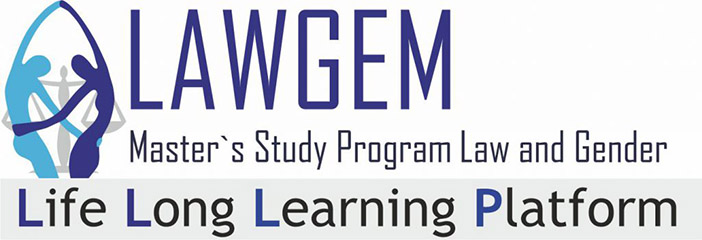Faculty of Law University of Belgrade in the cooperation with the OSCE Mission to Serbia organized the Spring School/Pilot Master – Law and Gender. This Spring School was based on the project LAWGEM and served as a kind of the pilot practicing of the future master`s study program Law and Gender. It covered all courses contained in this master`s study program curriculum, and the reading materials consisted to a great extent of the books published within the LAWGEM project. The School was organized in a hybrid form – in person at the Faculty of Law University of Belgrade and online, with 69 participants (students of undergraduate, master and PhD level), both from Serbia and other countries around the world (Albania, Belarus, Bosnia and Herzegovina, Brazil, China, Croatia, France, Germany, India, Iran, Italy, Montenegro, Russia and Vietnam). It is certain that participants of this School have gained valuable knowledge which will help them on their academic path and in their professional careers. On the other hand, the Spring School represented an excellent preparation of lectures and pedagogic experiences of the scholars from the University of Belgrade Faculty of Law for the future conducting the master’s study program Law and Gender.
The optional course “Sociology of Law and Gender Equality” consisted of three lectures delivered by Professor Dr. Danilo Vuković, Teaching Assistant Valerija Dabetić, and Teaching Assistant Mila Đorđević. Professor Dr. Vuković provided an introductory presentation on the topic of “Gender (In)equalities from a Socio-Legal Perspective”. He gave a brief overview of different aspects of braches of feminism and then discussed how informal norms and institutions influence legal norms concerning gender relations. Professor presented data related to the prevalence of patriarchal informal norms among citizens of Serbia, which impact the understanding and enforcement of legal provisions regarding gender equality. The second lecture was delivered by Mila Đorđević on the topic of “Gender Inequalities with Reference to Serbia”. She presented empirical data to illustrate the phenomenon known as the “feminization of poverty”, which she categorized into six different dimensions: one-parent families, gender pay gap, unpaid work, work-family balance, voluntary resignation from inheritance, and property ownership. Valerija Dabetić focused on “Gender and the Legal Profession” in her lecture. She discussed the trend of increasing women’s representation in the judiciary in Serbia (with a ratio of 3:1 in favor of women). However, Dabetić highlighted that this apparent equality is not consistent when it comes to management positions, describing it as an “illusory equality”. These lectures provided comprehensive insights into the sociological aspects of gender inequality within the legal framework and shed light on the complexities and challenges that still persist in achieving true gender equality in Serbia.
Sociology of Law and Gender Equality 1: Gender (In)Equality from a Socio-Legal Perspective
Sociology of Law and Gender Equality 2: Gender Inequalities with Reference to Serbia
Sociology of Law and Gender Equality 3: Gender and the Legal Professsion

